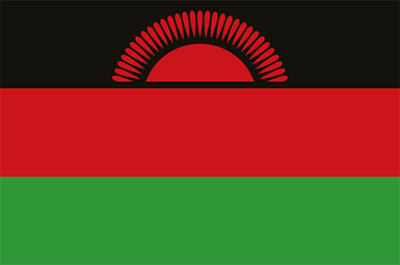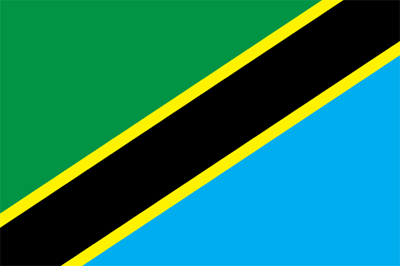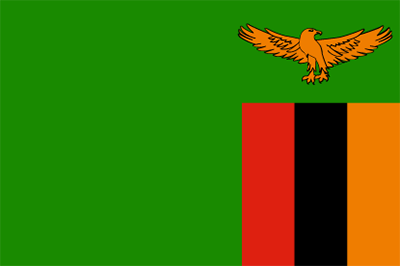
Malawi
In collaboration with experts from Malawi, we looked at different levels of climate risk and policy development to explore how they will affect food system resilience in 2050.
Key findings from Malawi
- Overall crop production in Malawi could increase by over 700% and livestock production by over 150%, by aligning national policies on technology, agriculture, infrastructure and food security.
- Warming is projected to be higher and extreme conditions more frequent under both high and low climate risk.
- Greenhouse gas emissions decrease substantially when there is effective policy development.
About our work in Malawi
AFRICAP in Malawi is co-ordinated by the Civil Society Agriculture Network (CISANET), a policy advocacy organisation working on agriculture and food security issues.
Our social and ecological research across Malawi provides evidence on the resilience of agri-food systems, with a view to informing debates on relevant national policies or legislation and their implementation.
These include the:
- National Resilience Strategy
- Malawi Growth & Development Strategy III
- National Agricultural Policy and National Agricultural Investment Plan
- Food and Nutrition Bill
- National Climate Change Policy and draft Meteorological Policy
- National Irrigation Plans & Shire Valley Basin Management Plan
- National Social Protection Policy
AFRICAP in Malawi builds on existing research partnerships between the University of Leeds, the Department for Climate Change and Meteorological Services (DCCMS), Lilongwe University of Agriculture & Natural Resources (LUANAR) and Malawi University of Science & Technology (MUST), investigating both Climate-Smart Agriculture interventions and the resilience of agri-food systems to climate shocks such as drought or floods.
Our work includes:
- Running and providing bursaries for African and UK scholars to attend research training courses
- Jointly developing and running applied research projects
- Providing training on research outputs at on-farm sites
- Developing and disseminating research outputs through joint research-policy forums
AFRICAP maintains the Conservation Agriculture trial site jointly run by the University of Leeds and the Department of Agricultural Research Services (DARS) at the Chitedze Research Station, providing support for ongoing field trial studies. These are expanded to gather data on soils, such as carbon storage and water holding capacity, and ecological impacts, such as crop pests and ecosystem services, and through monitoring of on-farm trial sites.

South Africa
In collaboration with South African experts, we looked at different levels of climate risk and land reform policies to explore how they will affect food system resilience in 2050.
Key findings from South Africa
- With the right climate-smart policies in place, South Africa’s arable areas decrease but its crop varieties improve.
- Temperature extremes will occur more frequently under both the low and high-risk climate scenarios.
- Action in the face of high climate risk could improve nutrition security.
- Greenhouse gas emissions will increase by about 50% under all scenarios.
About our work in South Africa
AFRICAP in South Africa is being co-ordinated by the National Agricultural Marketing Council (NAMC), a strategic body concerned with ensuring fair market access for all and enhancing the viability of the country’s agricultural sector.
Our social and ecological research across South Africa will provide evidence on the contrasts and inter-linkage between smallholder and large commercial agricultural sectors, and the impact of national and provincial policy interventions on climate-smart agricultural production methods, crop and livestock production, income streams, diets and nutrition.
These include:
- National Development Plan – Vision 2013 (Chapter 5)
- South African National Climate Change Response Policy
- National Resources Management Policy
- Disaster Management Act
- Drought Management Policy
- National Climate Change Response Green Paper, and
- Climate Change Bill
AFRICAP in South Africa builds on existing research partnerships between the University of Leeds, the NAMC, and food and agricultural researchers at the Stellenbosch University, the University of the Free State, and the University of Pretoria’s Centre of Excellence in Food Security.
Our work includes:
- Running scenarios workshops to assist in agricultural sector planning
- Ecological and socio-economic research examining the role of farm size and capital access on climate-smart management, production and diets
- Linking to and building upon existing policy experiments in South Africa’s Special Economic Zone and AgriPark initiatives
- Developing and disseminating research outputs through field research, modelling and science-policy dialogue
In South Africa, AFRICAP focuses on the contrasts and interactions (flows of materials, organisms, incomes and food) between neighbouring large and small farms. This is both of direct interest and serves as a model for the wider agricultural economy of the country. The work looks at the uptake and effectiveness of climate-smart practices in these two contrasting agricultural sectors. Results will be used to help develop models to predict the dynamics and resilience of South African agriculture in the face of future climate change.

Tanzania
In collaboration with Tanzanian experts, we looked at different levels of climate risk and technology development to explore how they will affect food system resilience in 2050.
Key findings from Tanzania
- Overall crop production in Tanzania could increase 17 fold [1676%] – with livestock production more than doubling, by adopting strong agriculture technology and innovation policies.
- Greenhouse gas emissions decrease in all scenarios.
- Irrigation and investment in new crop varieties to boost yields are key to maintaining and increasing crop yields.
About our work in Tanzania
AFRICAP in Tanzania is being co-ordinated by the Economic and Social Research Foundation (ESRF), an independent, not-for-profit Tanzanian institution that specialises in research and policy analysis.
Our co-designed, transdisciplinary and adaptive research in Tanzania will support development of an evidence base on the resilience of agri-food systems, with a view to informing debates on relevant national programmes, plans, policies or legislation and their implementation.
These include, for example:
- Tanzania Agriculture Climate Resilience Plan
- Agriculture Sector Development Programme (ASDP)
- II National Climate Smart Agriculture Guideline
- National Food and Nutrition Policy
- National Climate Change Strategy
- National Climate Change Adaptation and Mitigation policies and planning processes
- National Five Year Development Plan II
- Tanzania Development Vision 2025
In Tanzania, the core AFRICAP team builds on and expands existing research relationships with Sokoine University of Agriculture, University of Dar es Salaam, Nelson Mandela African Institute of Science and Technology, Tanzania Meteorological Agency, CGIAR-CCAFS Programme, and the EU’s GCCA+ Programme. The programme also develops new partnerships to inform and support development of evidence-based policy pathways that facilitate the development of sustainable, productive, climate smart agricultural systems to meet food security and economic development needs.
The following research is envisaged in Tanzania:
- Modelling activities to explore agri-food system scenarios that consider diets, climate impacts, and climate change mitigation.
- Climate science research to investigate resilience in, diversifications of, and transitions from, maize systems.
- Meteorological and livelihoods research to consider orography and its interactions with agriculture in Tanga region.
- Agricultural, environmental and social science collaboration to develop methodological protocols that investigate climate-smart agriculture intervention and innovation processes and evaluate their impacts.
- Food safety and health research to assess key drivers and determinants of food loss, aflatoxins, and impact on nutrition and health.
AFRICAP supports:
- African and UK scholar training aligned to the research and policy-facing activities
- Joint development and implementation of applied and interdisciplinary research projects
- Knowledge sharing of research for policy and practical impact
- Research-based learning among farmers, practitioners and academics.
- Development and dissemination of research outputs through joint research-policy forums.

Zambia
In collaboration with experts in Zambia, we looked at different levels of climate risk and connection of local and global markets to explore how they will affect food system resilience in 2050.
Key findings from Zambia
- Overall crop production could increase by 564% in Zambia, with livestock production more than doubling, by better connecting local and global trade markets.
- Temperature extremes will occur more frequently under both the low and high-risk climate scenarios.
- Without significant increases to food imports, there is only enough food for everyone in the high climate risk and high market connectivity scenario, although nutrition security is not achieved for all nutrients.
- Greenhouse gas emissions decrease with effective market connection and increase slightly in the ineffective market futures.
About our work in Zambia
AFRICAP in Zambia is being coordinated by the Agricultural Consultative Forum (ACF), a Zambian Non-Governmental Organization (NGO) that provides a stakeholder platform for agricultural policy dialogue and fostering of public-private partnerships in Zambia’s agricultural sector.
The University of Leeds and the UK Met Office are collaborating with ACF and the University of Zambia on a number of research projects and areas of work.
These include:
- Assessments of agricultural and food system development pathways to 2050, through scenario development workshops and the use of state-of-the-art food systems, land use and climate models
- Joint work between in-country experts in crop breeding/seed systems and climate scientists: (a) to evaluate technological crop breeding capabilities and seed system processes for improving resilience to projected climate change-related stresses in maize, rice, cassava and soybean (and potentially other crops if there is demand) and; (b) to improve access to relevant and appropriate climate information for crop breeding and seed development and dissemination
- The development of forecasting tools and climate services associated with extreme events
- A UK PhD scholarship for a Zambian national focusing on the dietary and livelihoods implications of transitions to increased soya production
Further priorities for AFRICAP in Zambia will be agreed with insight from local stakeholders.
